Diphenhydramine
- Classification: first-generation nonselective antihistamine (Sicari & Zabbo, 2021).
- FDA-approved uses: dystonias, insomnia, pruritis, urticaria, vertigo, and motion sickness (Sicari & Zabbo, 2021), other allergy symptoms.
- Off-label uses: local anesthetic (Sicari & Zabbo, 2021).
Dystonias – involuntary muscle movements;
Pruritis – itchy skin;
Urticaria – rash;
Off label – for patients allergic to other drugs, oral mucositis treatment.
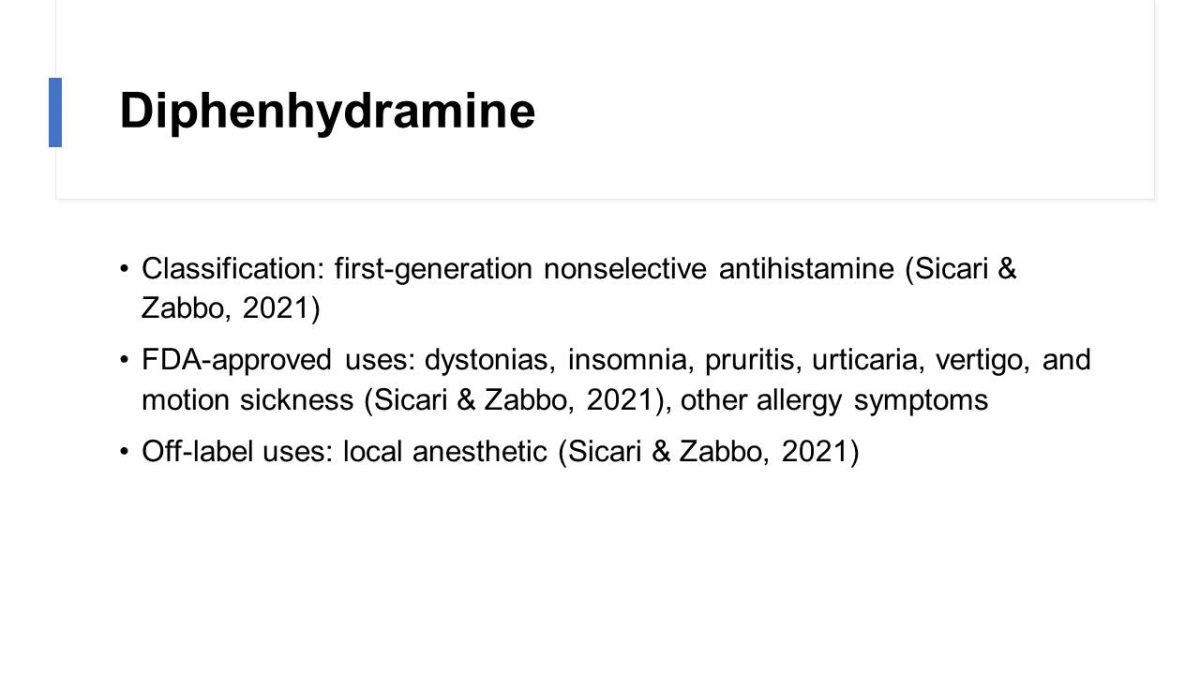
Federal and State Regulations
- Missouri regulations: no special regulation.
- Federal law: warning issued.
- Best practices regarding dispensing: with a doctor’s prescription (“Benadryl (diphenhydramine): Drug safety communication – Serious problems with high doses of the allergy medicine,” 2020).
State: there are no differing regulations specific to Missouri on this drug.
Federal: there has been a warning issued on the severe toxicity and side effects of the drug at high doses, as well as its misuse by young people.
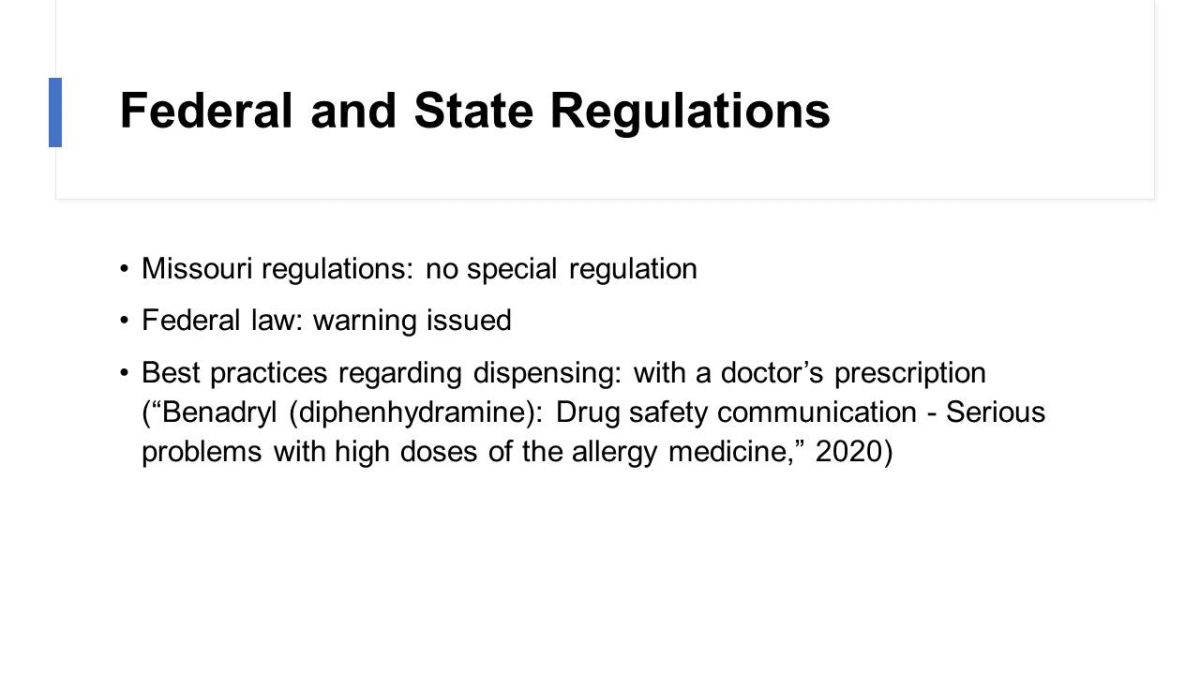
How it works
- Suppresses cough.
- Local anesthesia.
- Causes drowsiness.
- Time until full action around 2 hours (Sicari & Zabbo, 2021).
Acts as a histamine 1 and muscarinic acetylcholine receptor antagonist (cough).
Also, an intracellular sodium channel blocker (local anesthesia).
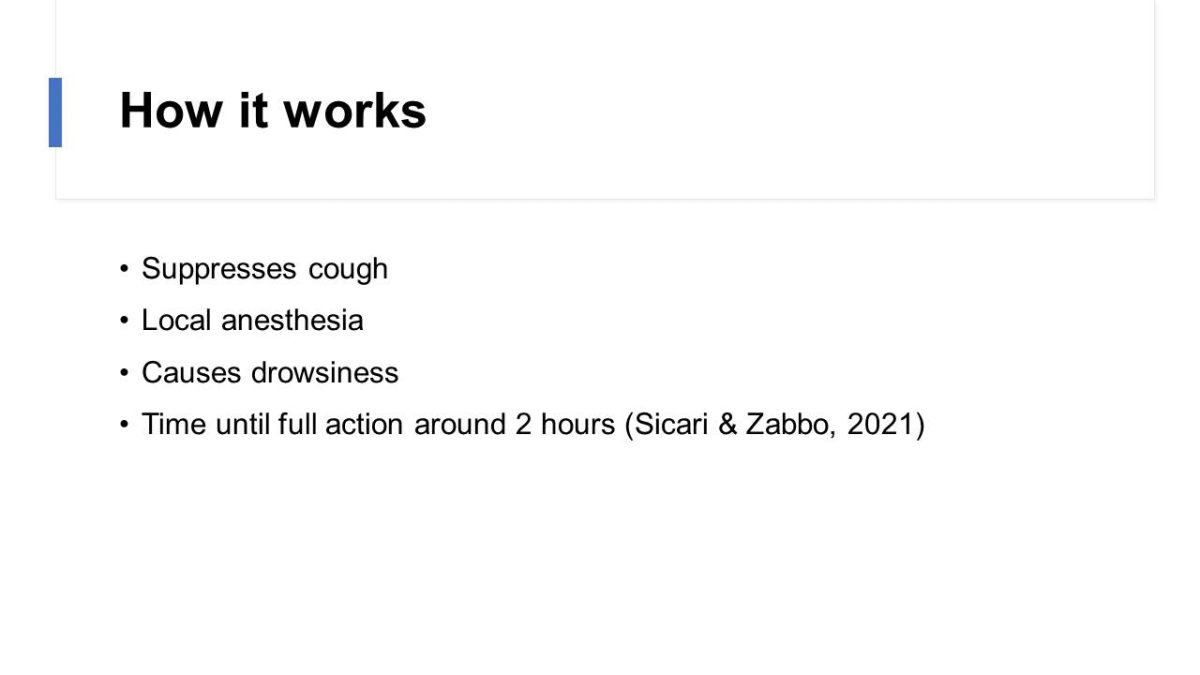
Side effects
Most common side effects:
- Dry mouth, nose and throat;
- Drowsiness and dizziness;
- Nausea and vomiting;
- Loss of appetite;
- Constipation;
- Increased chest congestion;
- Headache;
- Muscle weakness;
- Excitement and nervousness.
Severe and rare side effects:
- Vision problems;
- Difficulty urinating or painful urination (“Diphenhydramine,” 2018).
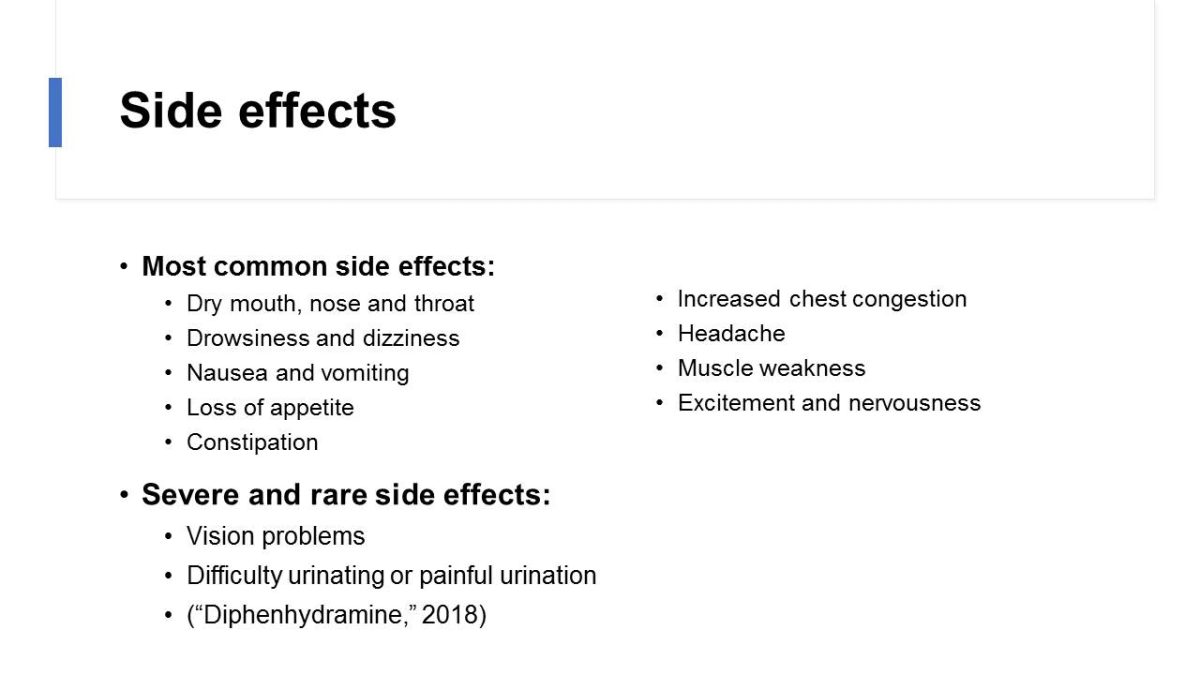
Significant substance interactions
May interact with:
- Other antihistamines applied to the skin;
- Other drugs for sleep and anxiety, such as alprazolam, lorazepam, and zolpidem.
May increase drowsiness when taken in conjunction with:
- opioid pain or cough relivers;
- alcohol, cannabis;
- muscle relaxants
(“Sleep Aid Tablet – Uses, Side Effects, and More,” n.d.).
It is advised to ask the pharmacist about the particular substance interactions.
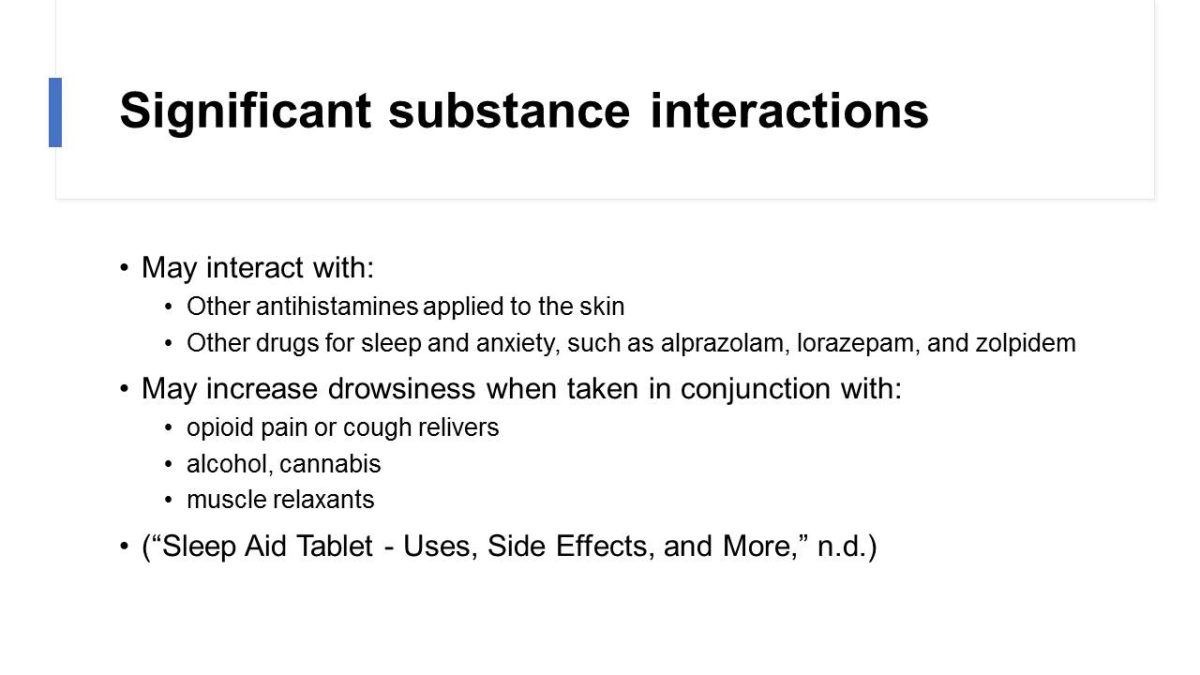
Informing patients
Tablet, capsule, liquid forms, as well as by intramuscular or intravenous injection
Starting dose:
- Adults:
- 25-50mg at bedtime.
- Children:
- 12 and older – 25-50mg at bedtime
(Sicari & Zabbo, 2021).
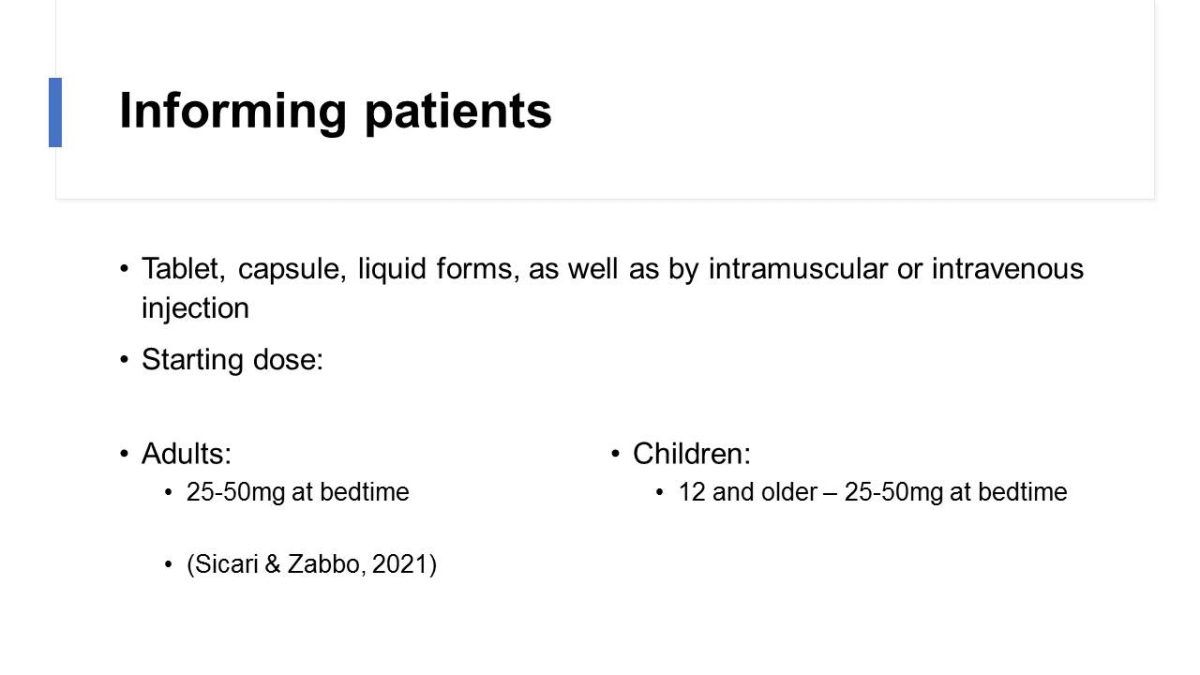
Expected costs comparison (using GoodRx)
Gerbes Pharmacy
- 30 capsules 25mg each: $2.23 with the GoodRx coupon;
- $7.00 retail;
- No insurance needed;
- Doctor’s prescription required.
Kroger Pharmacy
- 30 capsules 25mg each: $1.63 with the GoodRx coupon;
- $7.00 retail;
- No insurance needed;
- Doctor’s prescription required.
Other pharmacies
- Walgreens: $2.93 retail price;
- Target (CVS): $3.64 retail price;
- Walmart: $3.93 retail price.
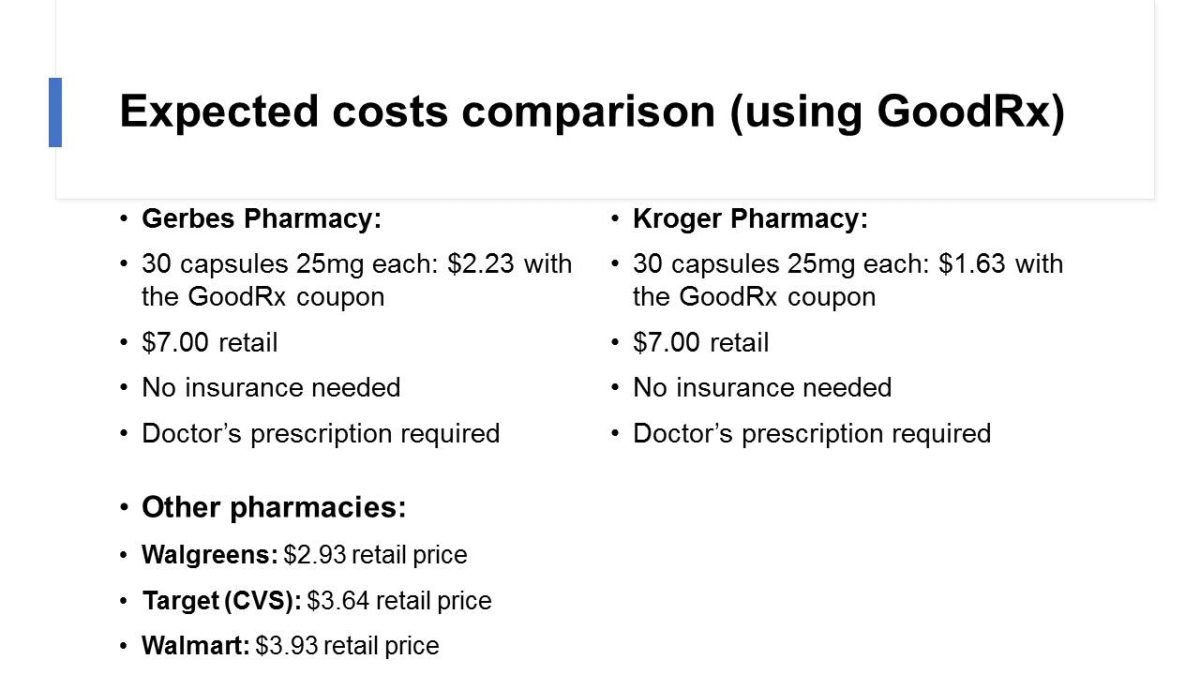
Required labs
- May interfere with some laboratory tests, such as skin allergy.
- Consult with a doctor or the medical personnel.
- No labs are required prior or during the admission of the drug for insomnia (“Sleep Aid Tablet – Uses, Side Effects, and More,” n.d.).
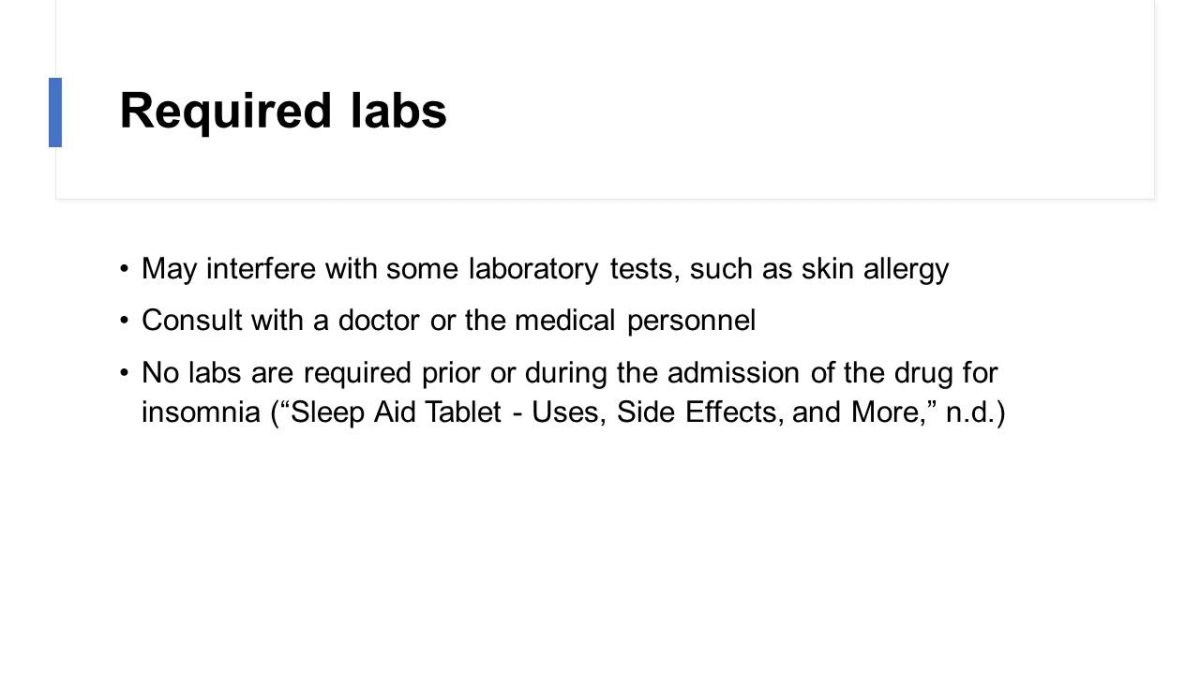
Contraindications
- Documented hypersensitivity to diphenhydramine.
- Premature infants and neonates.
- Diphenhydramine has additive effects with alcohol and other CNS depressants (hypnotics, sedatives, tranquilizers).
- Monoamine oxidase A inhibitors prolong and intensify the anticholinergic effects of antihistamines (Sicari & Zabbo, 2021).
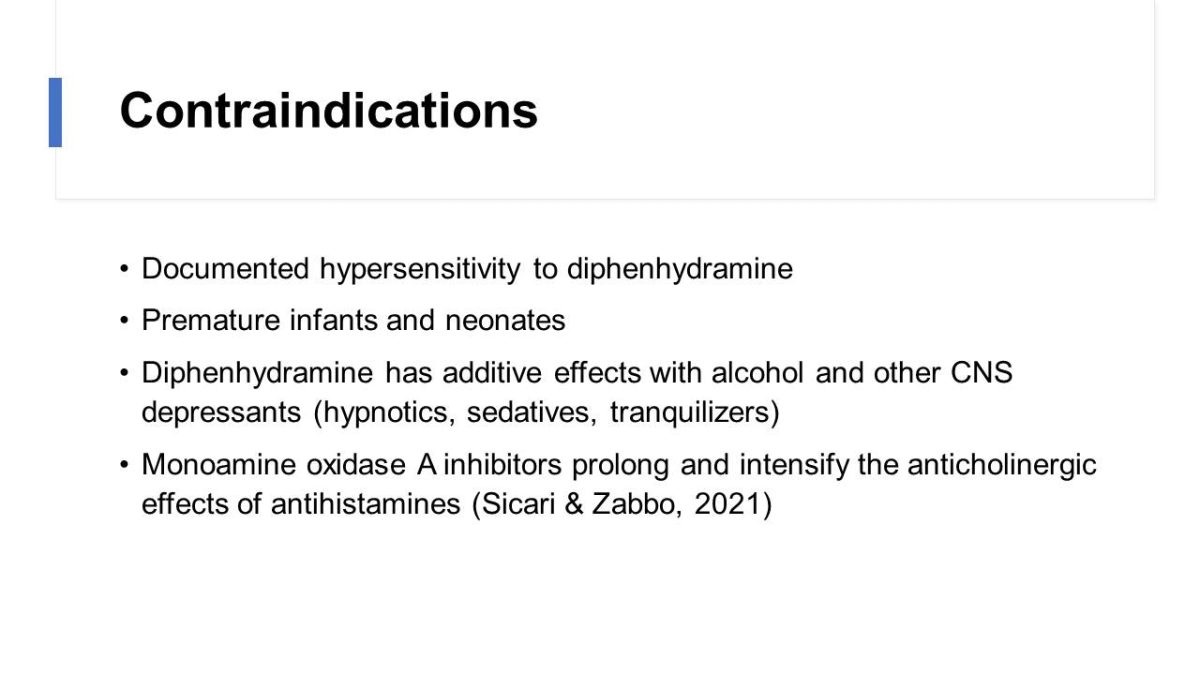
Pregnancy and Breastfeeding precautions
Not recommended for breastfeeding or pregnant women unless clearly needed (Sicari & Zabbo, 2021).
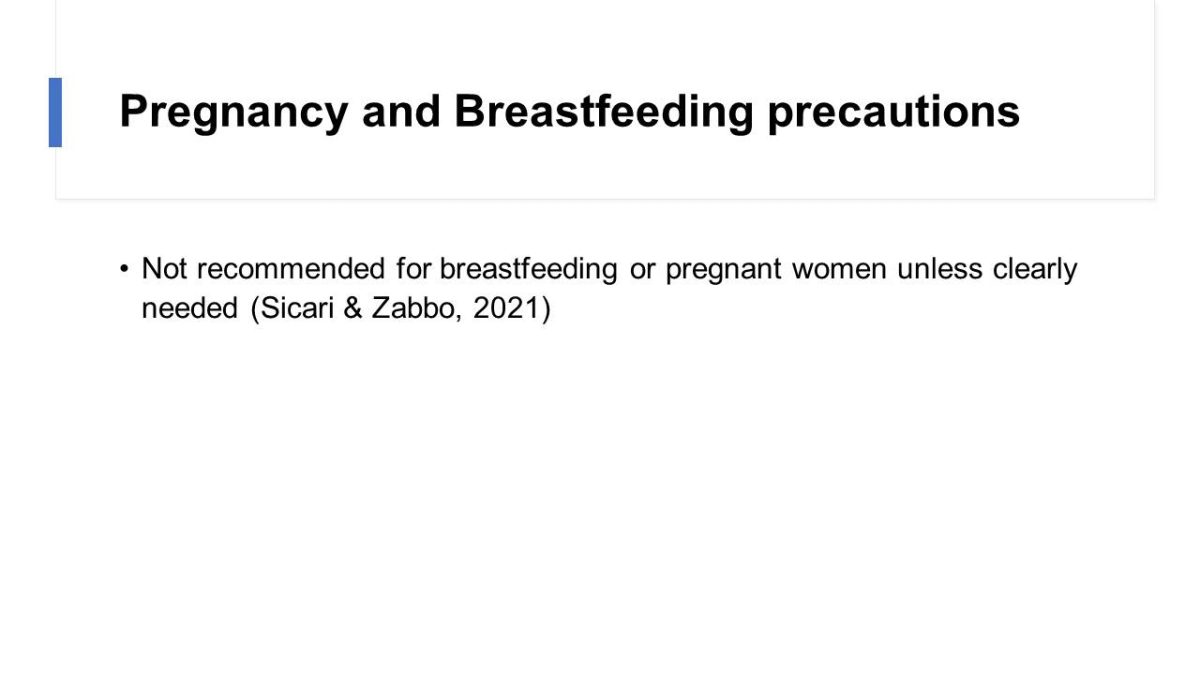
Age limitations
- Not prescribed for insomnia for children under 12.
- However, prescribed as allergy medicine for children as young as 2.
- Older adults and children might be more sensitive to side effects – children more likely to feel excited as a result (“Sleep Aid Tablet – Uses, Side Effects, and More,” n.d.).
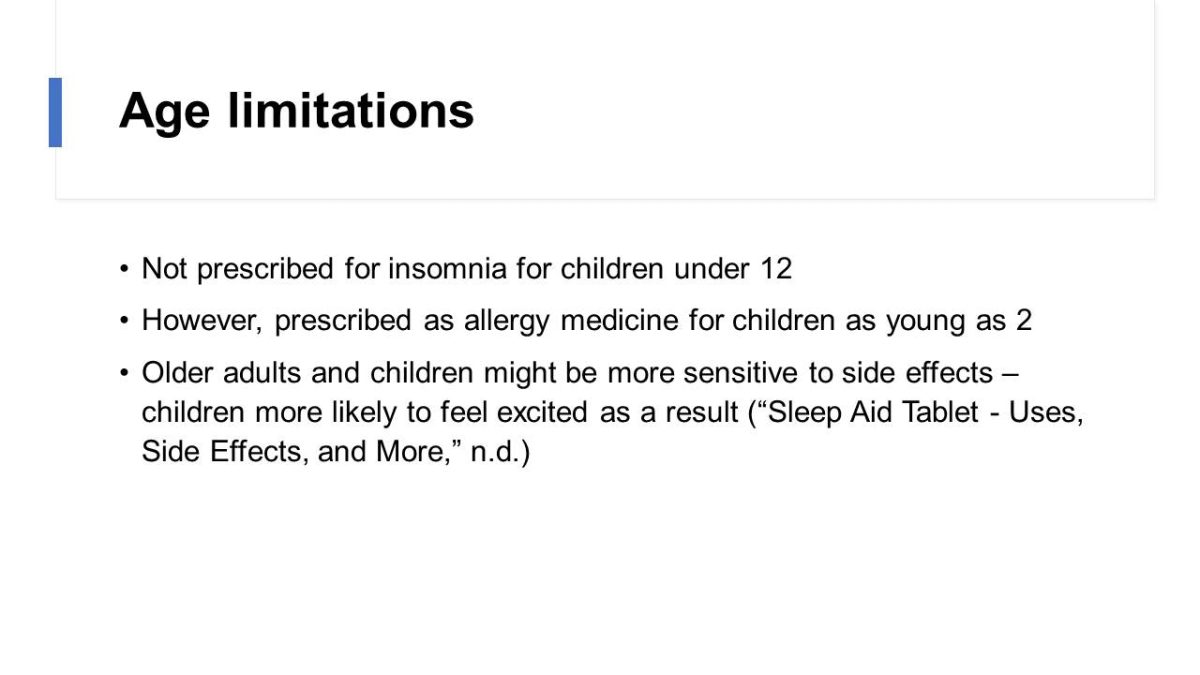
Example of patient clinical profile
- Signs/symptoms: sleep disturbances.
- Diagnosis: insomnia.
- Age: 25.
- Gender: female.
Note: this is just one example, the drug might be prescribed to any adult (12+) with insomnia symptoms.
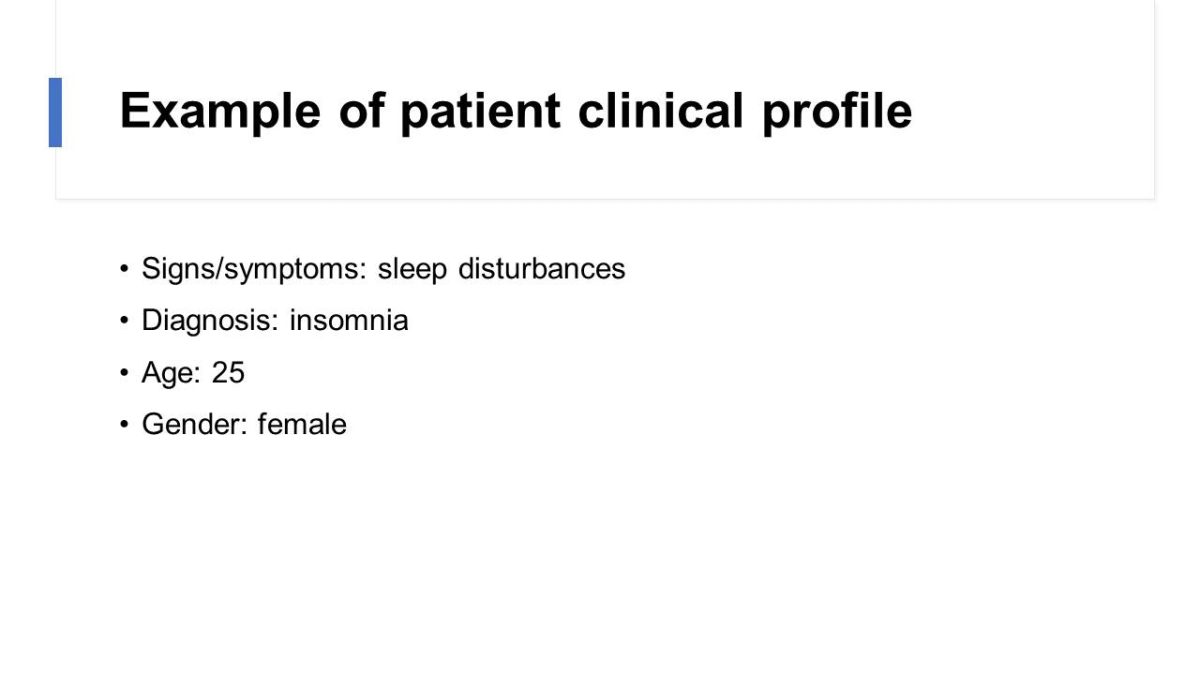
Example of patient clinical profile to avoid
- Signs/symptoms: sleep disturbances.
- Diagnosis: insomnia.
- Age: 5.
- Gender: male.
Note: this is just one example, the drug should not be prescribed as sleeping medication to any children under the age of 12.
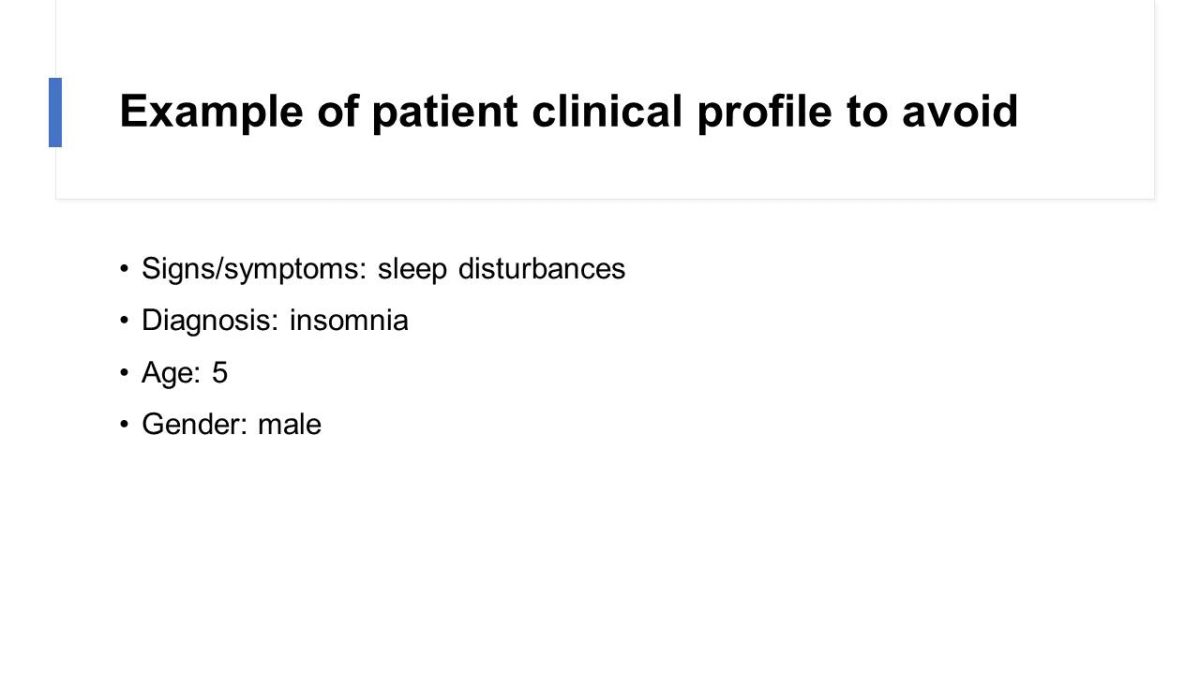
References
Benadryl (diphenhydramine): Drug safety communication – Serious problems with high doses of the allergy medicine. (2020). FDA. Web.
DeCoy, H. (2018). Diphenhydramine Use in Insomnia. OhioPharmacists. Web.
Diphenhydramine. (2018). MedlinePlus. Web.
Sicari, V. & Zabbo, C. P. (2021). Diphenhydramine. StatPearls[Internet]. Web.
Sleep Aid Tablet – uses, side effects, and more. (2012). WebMD.